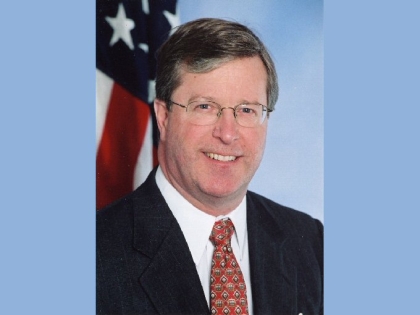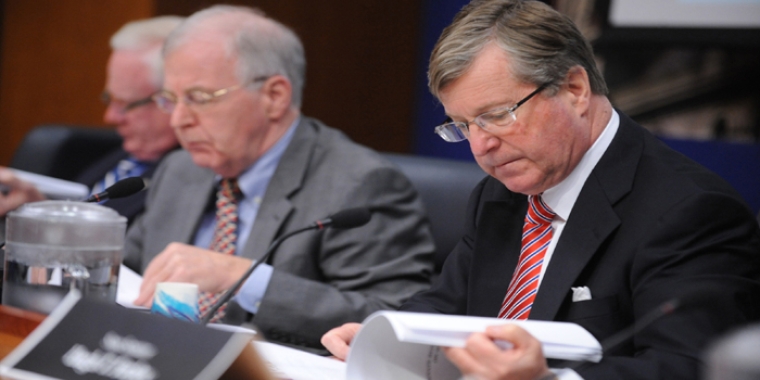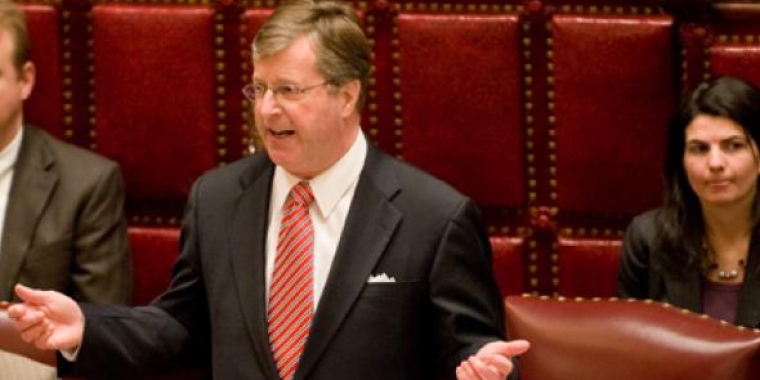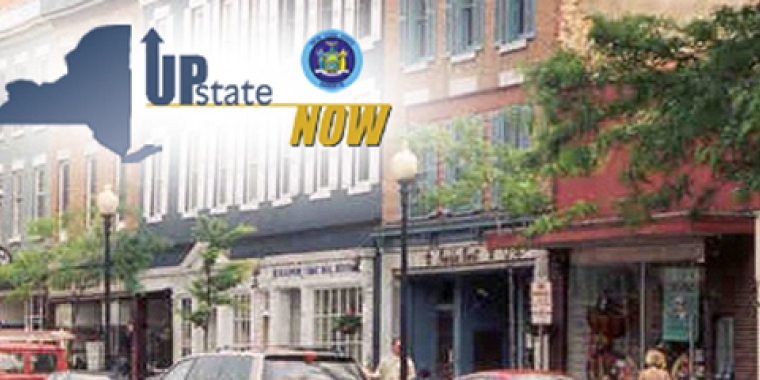
New Law Gives Volunteer Companies Access To Public Health Plans
Albany, N.Y.--Legislation co-sponsored by State Senator George Winner (R-C-I, Elmira), chairman of the Legislative Commission on Rural Resources (LCRR), to allow local volunteer fire and ambulance companies to participate in health insurance plans offered to municipal employees, has been signed into law by Governor David Paterson.
Winner said the new law, known as the "Volunteer Firefighter and Ambulance Worker Health Plan," is being viewed as a potentially effective way to bolster the recruitment and retention of volunteer firefighters and other emergency services personnel.
"It's a potentially powerful recruitment and retention tool," said Winner. "It could make a real difference."
Winner, who over the past several years has been reaching out to Assembly leaders to encourage bipartisan support on the issue of volunteer recruitment and retention, said that providing emergency services volunteers with access to less costly public heath insurance plans could prove a significant incentive.
The new law, together with Senate action earlier this year on legislation Winner sponsors known as the "Emergency Services Volunteer Incentive Act," arrives in the wake of a report from the state Commission on Property Tax Relief. The commission’s report has made the issue of high property taxes No. 1 on the state’s to-do list.
"High property taxes are the talk of the day throughout New York government. Volunteer recruitment and retention demands a place in the discussion. This issue warns of the next explosive property tax crisis facing localities across New York. We need to keep sounding the alarm," said Winner. "It would cost billions of dollars for local property taxpayers to pay for the critical services currently provided by volunteer firefighters and EMTs."
The Firemen’s Association of the State of New York (FASNY) estimates that it would cost local taxpayers more than $5 billion annually to replace volunteers with paid fire and ambulance services. According to FASNY, the number of volunteer firefighters statewide has declined from 140,000 in the early 1990s to fewer than 90,000 today. Volunteer emergency medical technicians (EMTs) experienced a decline from more than 50,000 to 35,000 during the same period, with some rural counties experiencing as much as a 50-percent depletion of their EMT ranks.
Winner's "Emergency Services Volunteer Incentive Act," which still must be approved by the Assembly, would:
> provide a $400 state income tax credit for volunteer firefighters and ambulance workers who have been active for four or more consecutive years. This new tax incentive would be in addition to the $200 income tax credit currently available to volunteers after one year of service;
> exempt motor vehicles owned and used in the performance of duty by an emergency services volunteer from motor vehicle registration fees and vehicle use taxes;
> authorize local volunteer fire and ambulance companies to use state-administered funds, collected annually through a two-percent fire insurance premium tax on out-of-state insurers, to help offset the cost of health insurance for their members;
> increase the number of qualified candidates, from one to three, that volunteer companies can submit for participation in New York’s "Volunteer Recruitment Service Scholarships" program, a college tuition assistance program for volunteers created by state lawmakers in 2002; and
> direct the state Higher Education Services Corporation (HESC) to create a volunteer recruitment service college loan forgiveness program.
A December 2005 report by the New York State Association of Towns highlighted the volunteer crisis in the hopes of sparking interest within the state Legislature for a variety of potential solutions, including some of those included in Winner’s legislation. In the report G. Jeffrey Haber, executive director of the Association of Towns, said that the "Association is deeply concerned that the continued decline in the number of volunteers in the fire and ambulance services throughout the state can only result in disaster for the residents of New York State. If the property tax system were forced to finance paid services in what are now volunteer systems, the impact would have grave consequences to the health and economic well-being of not just the towns, but the state as a whole."



